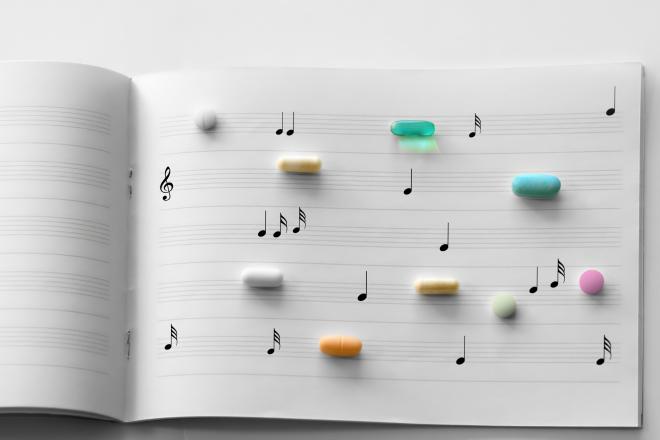
[fusion_builder_container hundred_percent=”yes” overflow=”visible”][fusion_builder_row][fusion_builder_column type=”1_1″ background_position=”left top” background_color=”” border_size=”” border_color=”” border_style=”solid” spacing=”yes” background_image=”” background_repeat=”no-repeat” padding=”” margin_top=”0px” margin_bottom=”0px” class=”” id=”” animation_type=”” animation_speed=”0.3″ animation_direction=”left” hide_on_mobile=”no” center_content=”no” min_height=”none”]
It’s hard to talk about drug culture without talking about music culture. From the abundant weed references in reggae to the psychedelic imagery in 60s rock songs, drugs have irrevocably shaped music. And, in turn, music has shaped how drugs are used and thought of.
Just look at festival culture. There’s no setting quite like music festivals where drug use is so widely accepted and publicly celebrated. As of March 2015, 25,605 Instagram posts about 15 of the world’s most popular festivals talked about MDMA, 9,705 talked about weed, and 4,779 referenced coke, according to a DrugAbuse.com study.
Why is this? Of all the places people can get high, why have concerts, clubs, and festivals become among the most popular? What do we gain from getting high as we listen to music? What might we lose?
On the first Monday of every month, I’ll explore those questions in a new column about music and drugs, along with ethnographic questions like: How does a drug become a club drug? Why are certain drugs associated with certain genres (even to the point that they’re named after them, as with psychedelic music)? How do drugs shape other aspects of music-centered cultures?
I’ll also delve into political issues like: Why are the drug-testing stands you see at European festivals absent from American ones (hint: we’ve got the RAVE Act to thank for that)? And scientific ones like: Why does MDMA make music sound so good?
I’m also here to help you navigate the world of drugs and music yourself. I’ll talk about how to stay as safe as possible at festivals, get the most out of musical settings where you’re planning to take drugs, avoid the combinations that truly are dangerous, and make comedowns and hangovers less awful.
My interest in this topic is personal. Like many people, I got introduced to drugs through music festivals. At the time, I knew shockingly little. After all, most festivals’ sites and signs echo what we learn in health class: “say no to drugs.” The reality is, many of us say “yes.” We decide that despite the risks, what we get out of drugs is worth it. And that’s nothing to be ashamed of.
Perhaps it’s this shame that’s made identifying with music a stand-in for identifying with drugs. I plan to drop those pretenses and acknowledge how central drugs have been to various musical subcultures. Through both music and drugs, people seek to alter their minds and expand their perspectives. And hopefully, this column will do that, too.
[/fusion_text][/fusion_builder_column][/fusion_builder_row][/fusion_builder_container]

